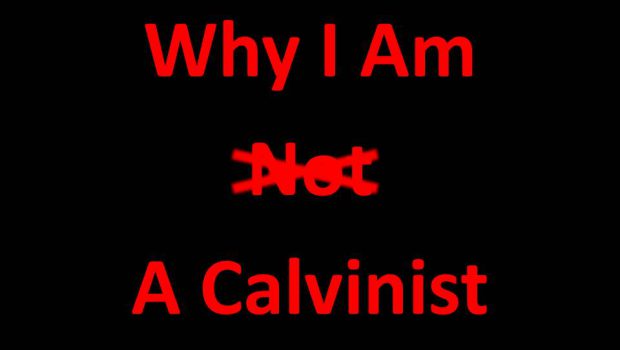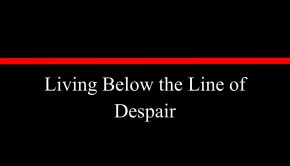Why I Am a Calvinist
Prolegomena
I am not a foreigner to theological shift. I have switched positions on many issues in the past. Some of them have been substantial (eschatology), others have been very small (think authorship of Hebrews).
Theological change should not be something we shun. Rather, it’s an admission of humility, an admission of our own fallibility and error. We should consider ourselves to have freedom within the bounds of historical Christian orthodoxy. That is, switching from amillennial to premillennial should not be a big deal among committed Christians. But switching from believing in the Deity of Christ to not believing it should leave you with a bloody nose on the floor of a church council.
In any case, I have attempted to allow my theological shifts to be guided by the Bible. Whatever else I believe, I believe the Bible to be our only ultimate authority in all matters of faith and practice. I attempt, as much as possible, to align myself with its teachings. I often fail, and I know I don’t understand the Bible as I ought, but even so I remain committed to it.
I know many people who think that we read the Bible according to our own biases and background, and to some extent this is true. But our biases have more to do with our acceptance or rejection of the text than our interpretation of it. The text of Scripture is clear, and the Holy Spirit inspired Scripture. The Holy Spirit also lives in us as believers. This gives us an advantage, a bias to understanding the text as the Author actually intended it. Thus, Scripture teaches and rebukes and corrects us (1 Timothy 3:15-17). If we never find Scripture changing our thinking on anything, then we should seriously question how honestly we are engaging the text itself.
Over the course of several months, I’ve found myself drawn more and more toward Calvinism. In some private conversations I’ve openly admitted this, but I believe it is now time to go public: I am a Calvinist.
Background
With that said, my biases and background did not favor Calvinism. In fact, I’ve grown up under very anti-Calvinist influences. My church is certainly not Calvinist, nor are most members of my family. My father frequently preaches against Calvinism. As I’ve studied apologetics for nearly nine years now, William Lane Craig influenced me heavily toward Molinism, and I embraced and defended that position for a long time. Additionally, I’m familiar with Norman Geisler’s critiques of Calvinism. I’ve watched his “Why I’m Not a Calvinist” lecture, and I’ve read his book Chosen but Free. In fact, as recently as January I read Roger Olson’s Against Calvinism.
In terms of education, I earned my first master’s degree through Liberty Seminary. This institution is committed to a modified form of Calvinism, Amyraldianism (or 4-point Calvinism), and strongly rejects the doctrine of Limited Atonement. While I did have a Calvinist systematic theology professor, I also had a professor who signed “A Statement of the Traditional Southern Baptist Understanding of God’s Plan of Salvation,” an explicitly anti-Calvinist document.
At any rate, I was not merely an Arminian, but an Arminian who actively promoted my views. I thought Calvinism did a great injustice to a correct understanding of the nature of faith, salvation, and personal moral responsibility. I sought to fully understand why I rejected Calvinism so as to guard myself from ever being drawn to it. I was not merely an Arminian, but was proactive in my anti-Calvinism.
Rumblings of Change
There were several factors that helped change this. First, even as an Arminian, I frequently read Calvinists. Let’s be honest here, as a young college student my options were things like John Piper’s Don’t Waste Your Life or some “hip” Arminian’s Dude, Where’s My Shoe? Okay, I’m not actually aware of any Arminian book by that title, but you get the point. There were the serious, challenging, biblically focused books by Calvinists, or the “relevant,” postmodern, emergent hogwash being rapidly endorsed (then abandoned) by Arminians. True, there were some serious books by Arminians (books I would recommend to this day), but they were predominately in the area of apologetics. They didn’t cover the same scope of material that Calvinists seem to be covering.
The same is true of sermons I listened to. Let’s face it, a large majority of the really serious big name expositors are Calvinists. John MacArthur? Calvinist. John Piper? Calvinist. Paul Washer? Calvinist (he also accepts “Spurgeonist”). Spurgeon? Calvinist. Lloyd-Jones? Calvinist.
There are some popular Arminian pastors, like Andy Stanley, but he’s busy explaining why expository preaching is cheap. This goes on while his Arminian friends advocate reducing sermons to 20 minutes and avoiding deeply doctrinal services.
You can begin to see the position I was in. I wanted doctrine, I wanted deep dedication to the Bible. And quite honestly, I couldn’t look to my own Arminian position to provide much of that. I had Tozer and Ravenhill, but they would agree with modern Calvinists when it comes to many of their critiques of the state of preaching and church practice. Thus, I began reading Calvinists and listening to Calvinists, all the while cringing when I came across statements about limited atonement and irresistible grace. I thought that I could just strain those things out, after all, I pray for discernment before reading anything.
This is not what convinced me of Calvinism, but it did bring a deep respect for Calvinists. They were taking Scripture seriously, in a way that most Arminians were (and are) not. They sought to apply Scripture to all of life, coming up with ideas like Nouthetic Counseling and promoting explicitly Christian education. Arminians were busy accommodating the secularists and sacrificing their children to Baal under the guise of “being salt.” For reasons like this, I found myself attracted to Calvinists despite their Calvinism (not because of it). I couldn’t find systematic understanding and application of the truth of Scripture inside my Arminian tradition, so I simply looked outside of that tradition to my Calvinist brothers. I saw that they were true brothers, and I saw the best of what Calvinism could offer.
Seeds of Doubt
I eventually asked the question “Does Calvinism provide a foundation for this type of theological reflection and application that Arminianism does not?” And this was one of my first doubts about Arminianism. Truth be told, modern Calvinism is hardly much older than Arminianism. One would think their theological developments since the Reformation should be roughly on par with each other. A quick survey reveals they are not, and this raises the question “Why not?” What is it about Calvinism that produced the great systematic texts? Why has Calvinist theological reflection so easily outpaced Arminian theological reflection?
I also began to doubt some of the Arminian interpretations of passages that discuss election. I know Arminian interpretations of Ephesians 1:4-6 (and like passages) exist. But suppose we are trapped on an island, and we have the text alone to rely on (suppose it’s the original text, and we can read Hebrew and Greek). Without any interference, do we really come to an Arminian understanding of this text? As I see it, the Calvinist reading seems to have much more initial plausibility.
Finally, I began to have a more robust understanding of the Five Solas. In particular, I am deeply committed to the doctrine of salvation by grace alone through faith alone (Sola Gratia and Sola Fide). I despise Pelagianism in all its forms. Don’t get me wrong, I’m not accusing Arminians of being Pelagians. But I was faced with a question regarding synergism. Namely, if our salvation in any way depends on our own choice, then in what sense is it by grace alone, through faith alone? It seems we would have to change it to “Saved by grace through faith… and the right choice at the right time.” If we must cooperate with God’s grace, then salvation does not ultimately depend on God but on us. That is, our choice becomes a necessary (but not sufficient) condition of salvation. I fail to see how this can be salvation by grace alone through faith alone.
I am aware of the doctrine of prevenient grace, I just don’t think it really helps here. God gives the sinner enough grace to make a decision, but the result of salvation still ultimately depends on that decision and not on God’s grace. Was the positive decision enabled by God’s grace? Yes, but so was the negative decision. If the grace doesn’t account for why someone decides some way, and someone else decides another way, then it’s not grace alone, there must be another element in play.
Over the Edge
It was ultimately this last issue that drove me over the edge. I was firmly committed to salvation by grace alone through faith alone, but as a good Arminian (of the Molinist variety) I could not successfully answer this question in a way that preserved these doctrines and my Arminianism. No matter how much resistable, prevenient grace one adds to the mixture, it’s not enough. Another element is still required, and that element is a choice that ultimately derives from the individual.
Because I cannot abandon the doctrine of salvation by grace through faith, and I perceived this conflict with my Arminianism, I had to abandon my Arminianism. Because this conflict does not exist within Calvinism, and numerous texts give Calvinism plausibility, I have come to accept Calvinism.
Objections
I know many objections will be raised against this, after all, I still hang out in many Arminian circles. Thus, I want to try to preemptively answer some of the objections I think will be raised.
Objection: “It seems like you only adopted Calvinism to be cool.”
Answer: I’m a postmillenial, Pentecostal, Calvinist, theonomist. If I were trying to be “cool” I would not try to balance all of these. My concern is to be biblical, whatever the cost.
Objection: “You didn’t give many Scriptural arguments for Calvinism.”
Answer: True, there are two reasons for this. First, I assume most of my readers are theologically literate and know the Biblical arguments for salvation by grace through faith. I assumed this, and subsequently argued from it. Secondly, this is a very autobiographical post, I wanted to present something of a chronology to explain how I personally came to accept Calvinism. It’s not a theological exposition.
Objection: “What about all the passages that talk about God’s love for the world?”
Answer: Yes, God loves the world. In fact, He is redeeming the world, all of it. I dare to say that I as a Calvinist probably believe more people will ultimately be saved than you as an Arminian do (though to be clear, I am not a universalist). The most loving thing God can do for the world is enact His perfect plan, and I believe He has done so.
Objection: “The Bible never teaches limited atonement.”
Answer: Well, we have to distinguish two uses of “atonement” here, because Arminians tend to mean one thing and Calvinists another. The question is one of intent, who did Jesus intend to save when He died? The Arminian says Jesus intended to save everyone. The Calvinist says Jesus intended to save only the elect.
Please notice, the issue here is not about the sufficiency of Christ’s sacrifice. Calvinists AND Arminians both believe Jesus’ sacrifice is completely sufficient to save everyone. Jesus death on the cross is enough to cover every sin that has been committed, that is being committed, or that will be committed. But it is not applied to everyone. With that said, there are passages that talk about the atonement in more limited scope, and they include Matthew 1:21, John 10:15, and 2 Corinthians 5:21.
Objection; “God can’t be love on Calvinism.”
Answer: We have to define “love” according to God’s self-revelation in Scripture. If Scripture teaches Calvinism, then we need to understand love according to Scripture’s teaching and not read a foreign definition of love into Scripture. God knows what love is better than we do, our job is to determine how He has revealed Himself, but never to sit in judgment upon His revelation of Himself.
Additionally, this objection is often motivated by thinking that a “loving” God could not choose some people to be saved and choose others to go to hell. But let’s be honest here, Arminianism has God sending people to hell. Arminians explain this by appealing to libertarian freedom. As a Calvinist, I would simply point to God’s omnirationality; God is going to act in accordance with all the unexcluded good reasons for an action. I don’t need to know what those reasons are, I’m content to think an omniscient being might have reasons that I can’t understand in my finitude. There’s no conflict between Calvinism and God’s love.
Objection: “If God is electing people, why are not all saved?”
Answer: As I hinted above, God must have a reason. Perhaps by having some go to hell God preserves compatibilist freedom in an important way that would not be preserved if all were saved. It’s also important to point out, as R.C. Sproul does, that no one gets injustice. Those that go to hell fully deserve to, they get justice. Those that go to heaven don’t deserve to, we get grace. But no one gets injustice.
Objection: “2 Peter 3:9 says God does not want any to perish, but some do perish, this doesn’t make sense on Calvinism.”
Answer: This verse is frequently taken out of context. In 2 Peter 3, Peter is writing about people questioning why the Lord hasn’t returned yet. His answer is in 2 Peter 3:9, “The Lord does not delay His promise, as some understand delay, but is patient with you, not wanting any to perish but all to come to repentance” (HCSB). Notice, the “promise” is the promise of Christ’s return, as we see in verse 4 of this chapter. The Lord not wanting any to perish is in reference to the second coming of Christ not happening before all who will repent have the chance to do so. This is not a statement directed to the world generally.
Objection: “On Calvinism, God causes people to sin and do wicked things.”
Answer: There’s a difference between what God permits and what God causes. Our sinful nature causes us to sin, and God permits this. We should distinguish between primary and secondary causes. If we go back far enough, whether on Arminianism or Calvinism, God is the ultimate cause of all things. He created the world, He caused it. If that’s what we mean by “God caused it” than Arminianism has no advantage over Calvinism.
I would say God never directly causes sin, but He does permit it. He is the secondary cause behind all primary causes, but this does not make Him guilty of sin.
Objection: “You seem to imply that Arminians don’t believe in salvation by grace through faith.”
Answer: Good Arminians do believe in salvation by grace through faith. I just think they do so inconsistently with their Arminianism. That is, I think there is a logical incompatibility between salvation by grace through faith and Arminianism. But many Arminians do not think this, either because they’ve never considered the possibility or they think there is a way to deal with it. In either case, so long as they uphold salvation by grace through faith, I’m not worried. The Arminians who do so are just Calvinists in denial 😉
It is early, and I work night shift. I know more could be written here, but I think that will have to suffice for now.
Soli Deo Gloria,
Josiah










